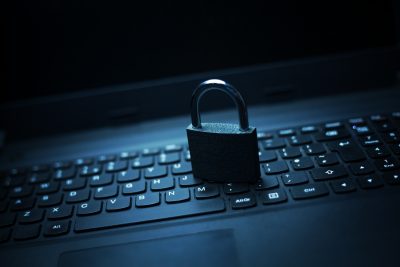How can I work remotely, securely?
By John Merrey

Working remotely is very common, but more people are being encouraged to work from home because of the ongoing, challenging events in 2020 and beyond. Organizations have closed down or decided to allow their employees to work remotely as a safety precaution, and that trend will likely continue into the future.
As if the pandemic challenges aren’t enough, employees who work from home are at risk for technological difficulties. To better help those people, here are a few things everyone should be aware of to work remotely, securely.
Potential risks
Though working from home has many benefits, you are more at risk when it comes to cybersecurity. Employers and their employees should both be aware of these risks and take the necessary precautions. A few types of cybersecurity risks include:
- Home Wi-Fi security – home internet networks typically have weaker protocols, increasing potential breaches.
- Weak passwords – these allow hackers easy access into your network and accounts, leading to the possibility of stolen sensitive information.
- Phishing scams – harmless-looking emails that may seem trustworthy, inviting you to click on a link so they can install malware and gain access to your device.
- Increased data sharing – virtual communication requires employees to exchange information more frequently, allowing it to be intercepted.
Precautions
Anyone can be at risk for cyber attackers, but there are ways to help prevent them and any other potential threats.
- Firewalls – software programs that protect your device from security breaches.
- Connect over VPNs – similar to firewalls and one of the top security tools because they protect data online.
- Multi-factor authentication – adds a few more steps, but it’s very effective in preventing security breaches.
- Password managers – require employees to use encrypted password software to ensure password safety (LastPass is a popular option).
- Back up your data – copy computer files to an external hard drive or cloud storage.
Cyber attackers are finding new ways to hack into your devices and steal your information. This can be damaging to businesses because most of them hold sensitive information. Working remotely puts employees and businesses more at risk, so taking the necessary precautions and following protocols can help prevent any potential threats and breaches.
